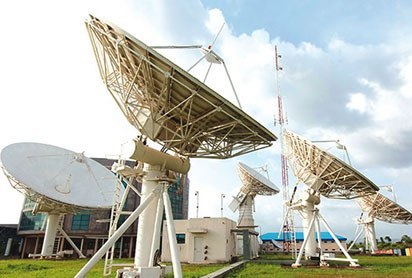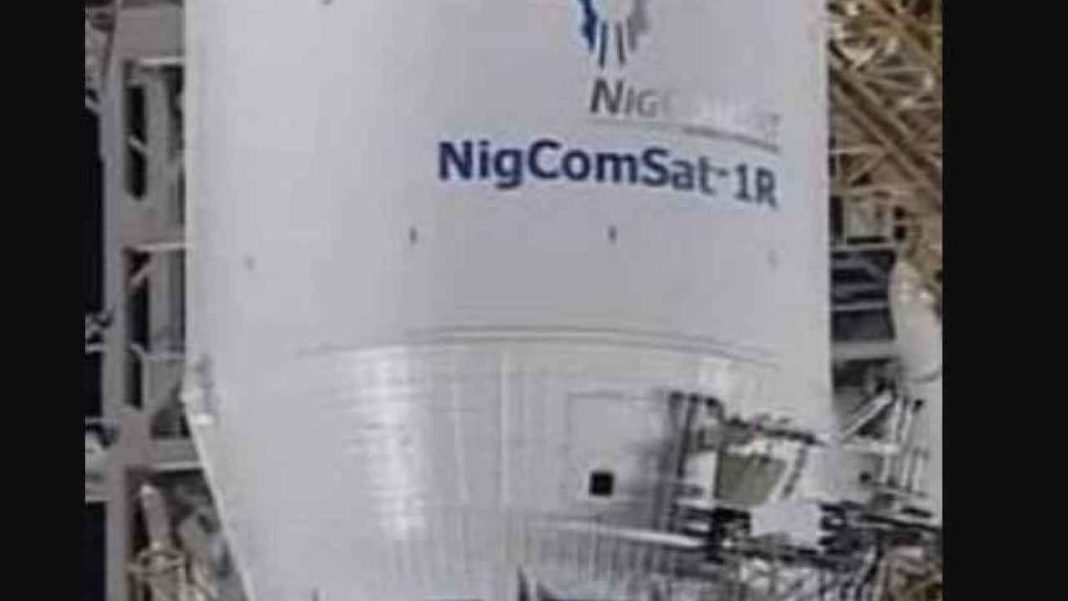The organized labour, as is often their way, has raised its voice against the proposed sale of NIgComSat. Their opposition came in reaction to announcement by the Bureau of Public Enterprise (BPE) that the government Satellite Communication Agency, was one of the parastatals slated for privatization this year.
Often, labour’s argument for protesting the sale of any government entity is the job loss of its members. That was the major crux of their argument when steps were taken to sell NITEL in 2001.
Today, everyone can bear witness that the government was right in selling NITEL, though the process of selling NITEL was flawed and the anticipated outcome, for the company, was least realized. This was because the sale was not carried out on a timely manner, and was not properly handled. By the time the company was eventually sold, the market had been eating into so much, that the new private owners, now NTel, had not much to gain from. Nevertheless, the associated reasons and arguments for selling NITEL, which was privatization and deregulation of the sector, were right, as the process and principle behind it has brought about bountiful results in the telecom sector.
It should also be noted that then privatization of government owned PTTs and associated deregulation policy was the global vogue. It was so for British Telecom (BT), Teleglobe of Canada and AT&T, of United States, also lost its monopoly when it was bought by SBC for $16b, etc. More jobs have been created in the deregulated sector of the telecom industry, and there is now a watershed in the provision of telecom services.
In the case of the sale of NigComSat, the labour union, apart from arguments that jobs would be lost, adduced some technical and political reasons for their call on the federal government to halt the sale of the satellite company.

In a letter signed by the labour body, Senior Staff Association of Statutory Corporations and Government Owned Companies (SASCGOC) President General, Comrade Mohammed Yunusa and its General Secretary, Comrade Ayo Olorunfemi, the association argued that the agency was a critical national infrastructure for security communication. That it was also conceived to bridge digital divide and for digital/financial inclusion for the large rural Nigeria.
It also argued that all the government need to do was to fortify NIGCOMSAT limited through an enabling act, mandating all Ministries, Agencies and MDAs to procure satellite services from NIGCOMSAT Limited. It also argued that the creation of Galaxy Backbone impeded the growth of NIGCOMSAT as a satellite industry and by extension Nigeria economy, adding that Galaxy Backbone’s use of foreign satellite communication systems for distribution of signals instead of NigComSat signals was encouraging direct capital flight.
It would be recalled that apart from Galaxy Backbone several government agencies have shunned depending on NigComSat services. The reason are obvious: they could not rely on the service of the public satellite agency because its services could not be trusted. With only one Satellite in orbit no reasonable business can rely on such service because in the case of failure there is no backup to continue the provision of service. Besides, most companies could not rely on the coverage area of NigComSat, its capacity level and the ability of the constituted managers to provide dependable service, even though its managers argue to the contrary.
It should be recalled that Nigeria launched its first earth observation satellite, NigeriaSat-1, on September 27, 2003. The satellite, launched by Kosmos-3M rocket from Russian Plesetsk spaceport, cost the nation $30 million. Not much benefit has accrued from that project.
The NigeriaSat-1 was followed with the launch of a communication satellite, NigComSat-1, valued at $200 million, which was ordered and built in China in 2004. It was completed and launched on May, 13 2007.
The orbital satellite launched then failed in orbit in 2008 after running out of power due to an anomaly in its solar array. It was re-launched in 2011 as NIGCOMSAT1-R at no cost to the Federal Government. That singular occurrence was enough to put a dent on the image of the Chinese designed and launched satellite for NigComSat.
The federal government, through the ministry of communication, recognized that the one orbital satellite owned by NigComSat was not enough to give confidence to anyone who would want to hook on to it. To address that flaw in NigComSat service, the FG began to make efforts, in 2016, to spend another $550 million to beef up the NigComSat existing fleet. The anticipated project was to bring in two more satellites, NigComSat 2 and 3.
The ministry of communication, under the watch of Barrister Adebayo Shittu, tried to get the federal government to build and launch the two additional satellites. Initially, the agreement was that the Chines, which built the first satellite, would provide the cost of the two satellites at $550 million minus 15 per cent, a counterpart funding by the FG. When it became obvious that Nigeria was not going to be able to provide the 15 % equity funding, the Chinese agreed to provide all the money through a renegotiation with China EXIM Bank and China Great Walls, which are the manufacturers and they agreed to pay the entire $550 million to procure the two new satellites.
Now one of the reasons Shittu and his NigComSat managers put up in trying to convince the president was that the FG should compel all ‘Nigerian entities’ to patronize the satellite. Now, that was a sure recipe for failure. Because businesses are not run by compelling people to patronize them. Their services usually speak for them.
We are not sure were that bid has reached. It is our view that the federal government should discontinue that discussion. It would be a wasted project, and we would be tied to the apron spring of the Chinese, who would call the shorts on what we would eventually pay, when and how.
We should recall that a similar $200 million rural telephony r project, financed by the Chinese, has not yielded the required result.
We at eWorldNews do not think that at this time in ICT global trend Nigeria should tie its satellite operation to equity financing and management by the Chinese. If there is still an existing case for a dedicated Nigerian Satellite in orbit, let a group of private investors buy NigComSat and launch more satellites and then go into the market to sell its services as a commercial-business entity.
While satellite communication could reach the rural areas faster and most likely provide cheaper services, the disadvantages, as it now stands, seem to outweigh the advantages. Several Nigerian companies are already running fibre optic cables to rural areas to provide the type of services that satellite would offer.
In any case, global trend is that hitherto government owned satellite companies have been, or are being, privatized.
Intelsat, which many Nigerian companies, are now hook on to, was privatized on 18 July 2001, 37 years after formation. Prior to Intelsat’s privatization in 2001, Nigeria, through NITEL, was part owner of the global satellite body. Similarly, the maritime satellite organization, INMARSAT, is also under privatization in 2005. All of us are aware of the failed history of Iridium, first a publicly run government entity before it was bought by private group of investors for $35 million, after over $6 billion, according to assets valuation, had been spent on it.
Today, there are also arguments that because there are too many satellites in orbit, over 1,950 by March 2019, there are frequency interferences and chances of collision. As a result, a United Nation Committee is now looking at best way to govern the space to stop collision, distorted frequencies due to jamming.
Managers of NigComSat, and those who are profiting from it, have been involved into much politicking to distract from the real issues. It is either they are fighting and running down one government agency and the ministers who do not share their view, in canvassing their position, or they are conniving with those who agree with them to canvass dubious narrations of the existing or perceived potentials of the organisation, some of which could not be verified.
It is our opinion at eWorldnews that NigComSat should have been sold since yesterday, because the satellite agency is a drain on the scares resources of the country. As was admitted by the labour officials in their letter to the president, so much money has been spent on NigComSat, without commensurate beneficial yields to the economy. Their claim that it is by spending much more money on the agency that would make it play its role more effectively does not hold much in the current circumstance. It would serve the country better if BPE is allowed to complete the sale bid.













